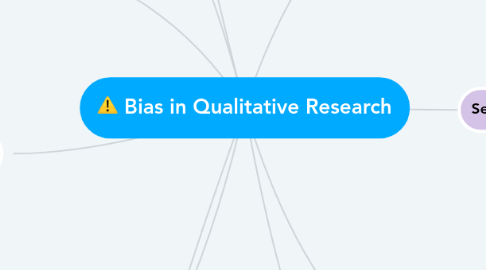Bias in Qualitative Research
by LILLIAN ZENTENO VALDIVIESO

1. To eliminate bias we eliminate or make the confounding variables constant. The presence of bias affect the credibility and generalizability.
2. Refers to giving ALWAYS positive answers to ALL questions. Thus researcher need to make open-minded questions, not "yes" or "no" sort of question.
3. Acquiescence-Participant bias
4. Dominant Responder-Participant bias
5. Leading Questions-Researcher bias
6. Sampling-Researcher bias
7. Biased Reporting
8. This participant can affect others answers or make them feel uncomfortable answering the truth. The researcher should keep an eye on this specific participant who want to show his assertiveness and superiority to others.
9. The way the questions are written can affect the participants answers, therefore it is important to write open-minded and neutral questions.
10. Using certain participant that can make easier the process, however, it may not give accurate responses. For example, a study on how well people know the human body, so the researcher to make the study look better selects many doctor participants. In some cases it is okay but they should be use with caution.
11. When findings of the study are not presented on the research report because they don't fit well or they affect their bias result.
12. Social Desirability-Participant bias
13. Sensitivity-Participant bias
14. Question Order-Researcher bias
15. Confirmation-Researcher bias
16. When participant act or respond as they think they will be accepted. They try to figure out the study thus to act as something better than they really are.
17. They can answer regular questions, however, they may hide secrets on sensitive questions. So the researcher needs to build trust with them by ensuring the study's ethical guidelines.
18. The order of the question can affect further responses. For example, someone asks you if you like sports? Your answer is yes but you hesitated because you don't really like them. Then the next questions are about other sport related things, so you feel pressured on giving other positive answers. To solve this, researchers should give more specific questions like positive questions before negative questions or behaviour questions before attitude questions.
19. When researchers use prior knowledges on their study and thus making biased questions based on their prior answers and beliefs. The solution is reflexivity because it may be a great reference but they should be aware on not being biased.


